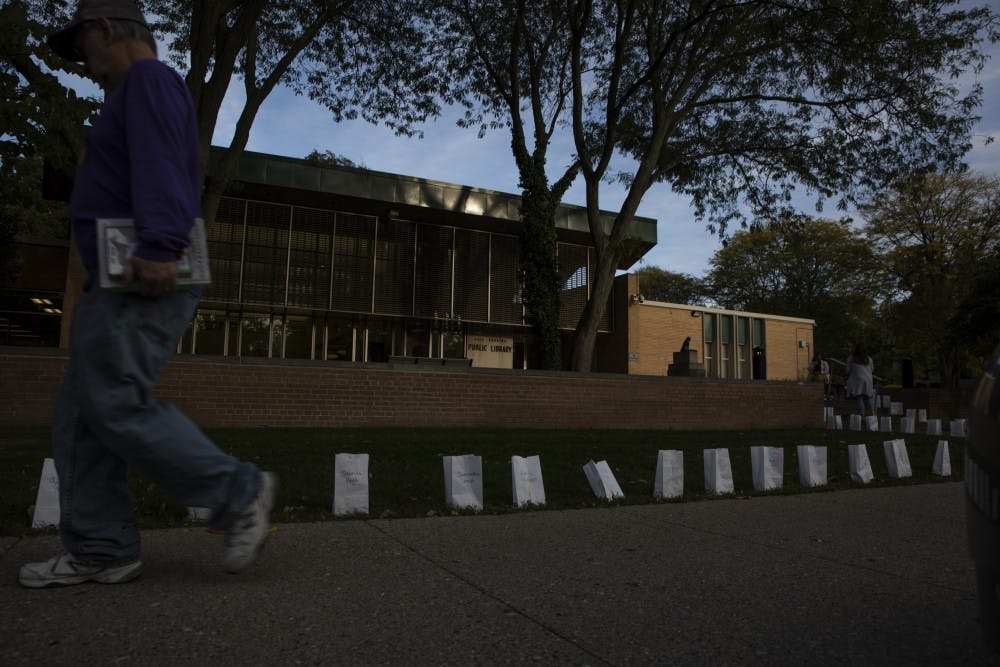Following the 2018 conviction of Larry Nassar, multiple advocacy groups formed in support of survivors of sexual violence.
Founded in February 2018, Reclaim MSU gained traction in Board of Trustees meetings. The group is made up of students, staff and faculty and remains an active participant in addressing Michigan State’s culture surrounding sexual violence and survivorship.
Reclaim MSU calls for transparency and openness from the university. It also uses social media to share Board of Trustees activity and information about the Attorney General's investigation into MSU.
“I just think it’s important to keep the university accountable, to know what’s happening in the university at every level, that’s really why we show up,” Reclaim MSU member Anna Pegler-Gordon said. “We also obviously want to support survivors because their struggle with the university is ongoing. They are continuing to try to fight for justice from the university and they continue to need the support from allies, so that’s another reason why we show up.”
In July 2018, The Army of Survivors became a national organization in support of survivors who are athletes. Founder and survivor Grace French created the organization that educates and provides resources for people that have experienced sexual assault.
The organization was formed after multiple sister survivors were approached by people who asked how they could financially and emotionally support survivors of sexual violence.
“It was originally going to be for everyone,” said Louise Harder, strategist and board member for The Army of Survivors. “However, we realized that there were so many other players in the field that are wonderful — we have RAINN as a national organization, and there are a bunch of national organizations as well as local organizations that are doing a fantastic job — and we didn't need to copy the same things that they were doing, and instead we wanted to find a gap.”
Beyond educating students about sexual assault and resources for survivors, friends, allies and mandatory reporters, the organization also aims to provide fiscal assistance to athlete survivors.
“We found that there is no national organization that helps athletes who are survivors of sexual violence, yet we know that there's such a large percentage of athletes who are survivors,” Harder said. “That's how we decided to narrow our focus — it was not so much to exclude people or to narrow it down, but it was more to focus in on where the gaps in our system were and where we could best meet the needs of any survivors who were falling through the cracks.”
Parents of Sister Survivors Engage, or POSSE, was also created following Nassar’s cases and exists to unite the parents of sister survivors to show how many people have truly been impacted by the abuse.
The organization planned and executed multiple displays using the number 505 — the number of known survivors of the abuse.
For some, the abuse tarnished their Spartan pride.
“My sister had season tickets to the MSU women's basketball games, I would go with her almost every week ... when I could for many, many years, so I was always a State fan,” survivor Danielle Moore said.
Having grown up in the area and having done gymnastics as a child, MSU was always there, Moore said. However, due to the university’s handling of the fallout during and after the Nassar cases, Moore is unable to call herself a Spartan.
“It's really hard for me to be a fan,” Moore said. “And it's nothing at all against any of the athletes playing. But because of how high this scandal went. I couldn't do it. It's hard for me to see posts about MSU, like people going to football games or basketball games.”
Moore said after she gave her victim impact statement the first morning of Nassar’s sentencing hearing and was unprepared for what was to come after.
“The pain is still there,” Moore said. “It's still raw and nothing is going to take that away except, you know, obviously caring for like mental health, right? But all the survivors would gladly as we've not given up the money to not have this happened. So the money doesn't fix anything. Of course it helps. But it’s not over.”
Support student media!
Please consider donating to The State News and help fund the future of journalism.
Discussion
Share and discuss “Following two years of advocacy, these groups are continuing to fight for cultural change” on social media.







